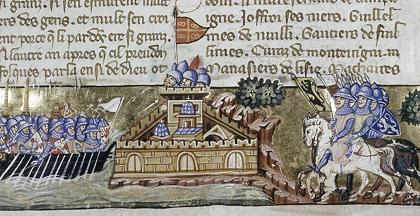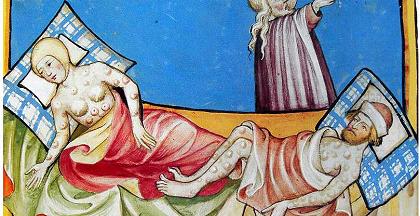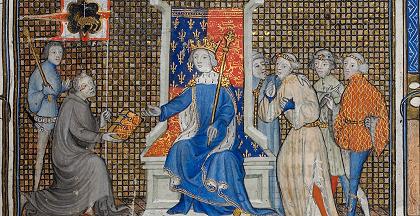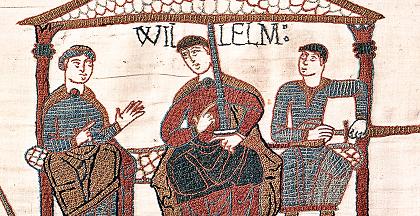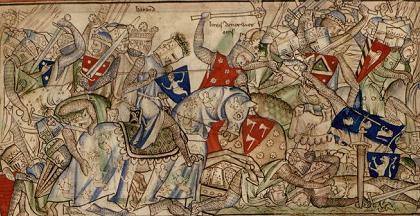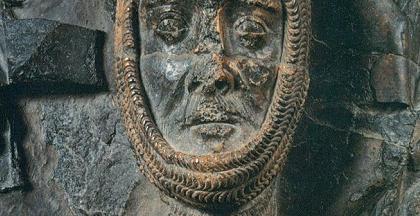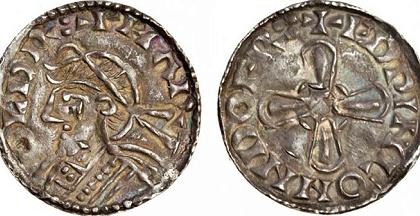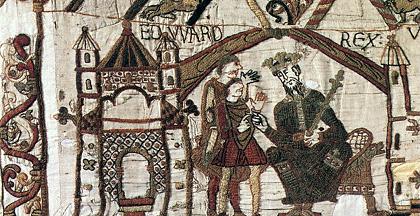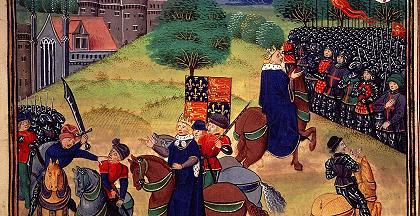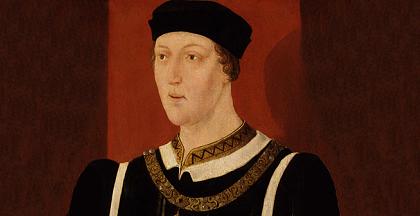Medieval History Articles
The Medieval period, often remembered for its knights, castles, and chivalric codes, was a complex era of feudal systems, religious transformation, and societal evolution. Spanning nearly a millennium, it laid the foundational stones of modern European culture, law, and governance.
Fiasco: The Mad Tale of the Fourth Crusade
For better or worse, the Crusades were among the more spectacular, far-reaching and important endeavours of the first two millennia of the Common Era. Typically they are seen as huge battles between the Christian West and the Muslim East, but as the Fourth Crusade shows, that wasn't always the case.
The Black Death: A Brief Introduction
The Black Death looms large in the modern imagination, as it did in the minds of late medieval people. It is a spectre, or shadow, reminding everyone of their mortality, and the briefness of life. The reactions it provoked showed the best, and worst, of the human condition, and its long-term effects contributed to sweeping changes in society.
Literature at the Court of Richard II
The last two decades of the fourteenth century stand out in English history, distinguished by cultural, social and political shifts that have echoed through the centuries. Yet perhaps the most widely-accepted and lauded change in this period came with the development of literary culture. The works of poets such as Geoffrey Chaucer mark a revolution in the history of English as an artistic language.
The Norman Conquest: Cataclysm or Continuity?
Without doubt, the Norman Conquest had an impact on England, but recently historians have stressed its continuity, questioning whether the invasion can be viewed as a cataclysm. After all, any incident claiming the description must have far-reaching consequences for the organisation of the country, its government, laws and institutions, and its economy.
The Battle of Stamford Bridge
The year 1066 is remembered in Britain for just one battle: the Battle of Hastings. And why not? After all, it had a profound effect on England, and has been called the most important battle in English history. But its outcome might have been very different if not for a battle that happened under a month before: the Battle of Stamford Bridge.
William Marshal: The story of a remarkable man
William Marshal was the landless younger son of a middle-ranking nobleman, who raised himself through the tournament circuit and serving five crowned kings, to become the de facto regent of England. He was the original celebrity, inspiration for films such as A Knight's Tale, and by his death was considered 'the greatest knight' in the world.
Harold Harefoot
Harold ruled briefly, from 1035 until 1040, and what has been recorded is often based as much on rumour, judgement and supposition as it is on fact. There are only two events of his short reign that are known about in any detail: his 'seizure' of power on the death of his father, and the blinding and subsequent death of his step-brother.
Edward the Confessor
Edward the Confessor, thought of as the penultimate Anglo-Saxon king, died childless on 5th January 1066, sparking the chain of events that led to the invasion of William of Normandy in September 1066. As the name implies, he is remembered as exceptionally pious, and was responsible for commissioning the building of Westminster Abbey.
The Peasants' Revolt of 1381
In May 1381, government demands to pay a poll tax started widespread rebellion in what became known as the Peasants' Revolt. Groups of people from Essex and Kent marched on London seeking social reform, inspiring others as they went. Leaders of the Revolt met with Richard II, who granted their demands, only to change his mind later.
Henry VI: the Weak King?
Henry VI has gone down in history as a weak and mentally unstable king, swayed too easily by his court favourites and his over-bearing wife. He is compared unfavourably with his father who had success in battle and in laying siege to towns.

